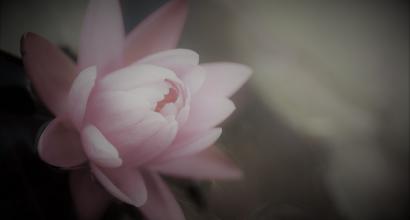Once we say that it is not wrong but only fit and proper to experience pleasure, we have to make all arrangements to obtain it. Sustaining the family, earning a salary for their comfort, taking loans in case there are emergencies and repaying them, giving and taking help, struggling thus in many ways become the duty of a householder.
Śrī Śankarācārya’s instruction is thus –
yogarato vā bhogarato vā saṅgarato vā saṅgavihīnaḥ
yasya brahmaṇi ramate cittaṃ nandati nandati nandatyeva—Mohamudgara
(A man whose mind dwells blissfully in Brahma is always happy, whether he is engaged in tapas or worldly pleasure, whether he is in company or is alone).
If a driver is appointed to drive a car, it becomes his responsibility to check whether all the parts of the car are working properly and whether there is enough fuel in the car. The Supreme, in its infinite wisdom, has established dharma in this world. It is our responsibility to see that it is performed well.
Śrī Kanakadāsa has expressed the sentiment that every duty is sevā to the divine in one of his kīrtanas, beautifully.
tanu ninnadu jīvana ninnado raṅga
enadāvudondanī jagadoḻu nā kāṇe
anudinadali baha sukhaduḥkha ninadayya(O Raṅga, this body is yours, this life is also yours. In this universe, I don’t see anything that is mine. The pleasure and pain that I experience daily are also yours).
This is the essence of all Vedānta. Our entire life is a yajña. Bhagavān says that yajña is of many types.
dravyayajñāstapoyajñāḥ yogayajñāstathāpare
svādhyāya-jñāna-yajñāśca yatayaḥ saṃśitavratāḥ (BG 4.28)(Ascetics accomplish various yajñas such as dravyayajña (giving up wealth), tapoyajña (performing austerities), yogayajña (practice of aṣṭāṅgayoga), svādhyāya-jñānayajña (self-study, gaining and distribution of knowledge).
evaṃ bahuvidhā yajñāḥ vitatā brahmaṇo mukhe
karmajān viddhi tān sarvān evaṃ jñātvā vimokṣyase (BG 4.32)In this way, many kinds of yajñas are known from the Vedas. Know all of them to be derived from karma (all of them are different forms of karma). Thus, you will be liberated.
In the Presence of the Divine
Whatever one can think of, whatever one’s mind likes, whatever one is capable of doing, whatever one likes to do, - if one thinks, “Śrī Kṛṣṇa prasīda (Śrī Kṛṣṇa, be pleased)” while doing any of this or praying for any of this - it becomes a yajña. Similarly, when experiencing any of this, if all of it is offered as ŚrīKṛṣṇārpaṇa (offered to Śrīkṛṣṇa), it becomes a yajña. However, it is not merely the tongue that must say this - but the mind. It should be embedded firmly in the heart. This famous verse also says the same -
ātmā tvaṃ girijā matiḥ sahacarāḥ prāṇāḥ śarīraṃ gṛhaṃ
pūjā te viṣayopabhogaracanā nidrā samādhisthitiḥ
sañcāraḥ padayoḥ pradakṣiṇavidhiḥ stotrāṇi sarvā giraḥ
yadyat karma karomi tattadakhilaṃ Śambho tavārādhanam—Śiva-mānasa-pūja
The essence of the earlier upaniṣat quote — "tasyaivaṃ viduṣo yajñasyātmā yajamānaḥ" is also the same. "śarīraṃ gṛhaṃ" — the body is the house of Paraśiva, and the enjoyment of worldly pleasures is "te pūjā" — his worship. Śrī Kanakadāsa says "eveyikkade noḍuva noṭa ninnadayya" — the sight that stares (at beautiful maidens) without blinking is yours, "ṣaḍurasadannakke nalidāḍuva jihve ninnadu" — the tongue that is gladdened by tasty food with all six flavours is yours. Life should be led in this manner, with a mind to yajña. "Yanmaraṇaṃ tadavabhṛthaḥ" — death is also a part of the yajña of life. The word yajña has a wide range of meanings. By the word jñāna in jñānayajña should be understood philosophy, biology or mathematics and all other branches of learning. Physics, biological and social sciences and all other scientific pursuits too are jñāna, which implies that even scientists are established in yajña. All studies, all art, and all knowledge are harmonised in the realm of self-welfare.
Our ancestors followed a meaningful vrata, "kavale kavale Govindaṃ" — at mealtime, they would take Bhagavān’s name with each morsel of food they partook instead of chatting with others. This is the same as reciting verses during meals. Today’s city life is not conducive for remembering the names of the divine often. Gandhiji tried to bring back this practice. Singing divine names is a kind of training for some minds. For people with such a mindset, even chanting divine names is a yajña. There are two kinds of results for all yajñas — obtaining what one wishes for, and gradual elevation of the jīva.
We perform our activities with a desire to accomplish something. However, if we perform karma with a view that it is a yajña or that it is a service to the divine, our minds will gradually turn towards the Supreme; our ego will gradually diminish as the jīva becomes purer. And as the jīva becomes purer, it becomes capable of grasping the principle of reality.
People work according to their capabilities. What did Kucela have? A handful of rice! How did that become inexhaustible? Because he said Kṛṣṇārpaṇa. Everything should be seen as an offering to Kṛṣṇa. Whatever we obtain must always be seen as a boon from Kṛṣṇa. An elderly person in my family would recite a Telugu verse at mealtime — "Not a grain of rice more, not a grain less; not a minute earlier, not a minute later; not a drop of water more, not a drop less. Bhagāvan, only the quantity that you determine will enter my stomach". After chanting the pre-meal mantras, he would recite this verse and take āpośana (ritual drinking of a spoon of water before meals). The meaning of the mantras chanted by vaidikas at meals — "śraddhāyāṃ prāṇe niviśya … prāṇāya svāhā ..." — is the same, it is the constant remembrance of the presence of the divine. It is "practising the presence of the Supreme". It is the feeling that we are always under the watch of the divine. The feeling of this proximity of the divine does not arise from a thousand campaka flowers or ten thousand jasmines. If the feeling first exists, only then does worship with this large heap of flowers carry any meaning. Maturity of mind is paramount. This is what Bhagavān implies when he says "patraṃ puṣpaṃ phalaṃ toyaṃ".
yajña-śiṣṭāmṛta-bhujo yānti brahma sanātanam
nāyaṃ loko’sty-ayajñasya kuto’nyaḥ kuru-sattama (BG 4.31)O great scion of the Kurus! Those who partake of the amṛta that is the remnant of yajña attains the eternal abode of Brahma. One who does not perform yajña is not even fit for this world, what then to say of other, higher worlds?
To be continued...
The present series is a modern English translation of DVG’s Kendra Sahitya Akademi Award-winning work, Bhagavad-gītā-tātparya or Jīvana-dharma-yoga. The translators wish to express their thanks to Śatāvadhāni R Ganesh for his valuable feedback and to Hari Ravikumar for his astute edits.

















































